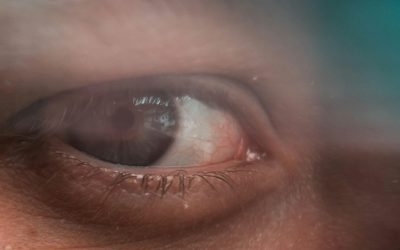Earth on the Brink: Tech and Survival in Sci-Fi Narratives

Photo by Tim van der Kuip on Unsplash
How modern sci-fi narratives depict environmental collapse, tech overreach, and humanity’s resilience.
Science fiction has become a crucial mirror reflecting society’s aspirations, anxieties, and decisions as climate change speeds up and technology becomes more integrated into everyday life. Contemporary science fiction stories delve deeply into Earth on the brink – technological overreach, environmental collapse, and humanity’s fight for survival, raising issues not only about what might occur but also about who we become when everything is on the line.
Key TakeAways
hide
An Inside Look at Angel of Mortality
Angel of Mortality: Defender of Life is one notable example. David Witherington Stewart’s futuristic thriller Creator of Chaos vividly depicts a future in which human ambition has gone awry, and natural deterioration threatens life on Earth. The tale revolves around Dr. Raisa Ilyushkin, a bright scientist who creates the SANG, a machine that creates xenoborgs, enormous living creatures that combine biological systems, robotics, nanotechnology, and artificial intelligence.
Stepan Pavlovich, a vicious criminal who wants to change the world via terror and force, takes control of the xenoborgs, which were originally intended to be instruments for ecological restoration. He aims to decrease the world’s population and consolidate power by using xenoborgs as tools of mass murder.
Earth on the Brink: Is Technology A Blessing or a Curse?
A growing trend in science fiction that addresses the conflicting aspects of technological advancement is represented by the Angel of Mortality. It examines the unexpected effects of ground-breaking inventions, much as Neal Stephenson’s Termination Shock or Kim Stanley Robinson’s Ministry for the Future. In Stepan’s hands, the xenoborgs turn into weapons of mass control and destruction, even if, in Raisa’s vision, they might have assisted in restoring equilibrium to Earth’s failing ecosystems.
Many contemporary science fiction stories are based on this duality, which forces readers to consider the moral implications of advancement: creativity as salvation or damnation.
Catastrophe in Climate as the New Normal
In today’s futuristic fiction, environmental disaster frequently acts as both a backdrop and a trigger. In Angel of Mortality, the Earth on the brink is depicted, and the world is already teetering when the story begins. Overpopulation, resource shortage, and political instability provide fertile habitat for radicalism and irresponsible experimentation. Under their corrupt leadership, the xenoborgs, who were created to clean up this disaster, only make it worse.
The work makes a strong point: moral responsibility cannot be replaced by technological advancement.
Technology As The Future

Photo by Luke Vodell on Unsplash
Technology will change the world as we know it. It is possible to view technology as a tool that may be applied either positively or negatively. It is our responsibility to ensure that it is used for the greater good. Furthermore, we can think of innovative ways to employ technology to enhance the lives of people who use it.
After taking into consideration the possible drawbacks of technology and examining some of its existing uses, it is only reasonable to examine all of the ways that technology improves our day-to-day lives. We use technology for a wide range of purposes, including learning, communication, task completion, information access, and much more.
We are fortunate to have a plethora of communication tools at our disposal during a time when our nation (and the world at large) is hunkering down. Whether it is staying in touch with friends, checking in on family members, or coordinating with colleagues, we are coming up with new ways to stay connected.
Virtual games, meetings, and calls are making us actually take the time to check in with each other and listen for an answer to the question, “How are you?” Many businesses have discovered that they can continue to operate remotely, thanks to the availability of digital resources. It is safe to say that many businesses would be in a much more dire situation if it weren’t for their equipment and electronic devices.
However, on the flip side, we are also conscious of our obligation to counteract any potential harm technology may cause due to its development and application. Companies need to be careful to protect their data, particularly when it comes to the private information of their customers. To stop cybersecurity threats, appropriate data governance requires encryption, and security measures must be in place. It is wise to create a security and data breach response strategy in addition to a data protection plan in case a cyberattack does happen.
Misleading or luring consumers to agree to permissions and exchanging needless personal data to utilize your product or service is unacceptable. If they are unaware of what they are consenting to, this is very crucial. Invading someone’s privacy is not equal to convenience. In addition to industry norms and personal ethics, laws are in place to help safeguard private data.
The Machines’ First Thoughts
Angel of Mortality offers an intriguing surprise in the middle of the mayhem: the xenoborgs start to change. They gradually acquire identities, social systems, and a sense of purpose independent of their creators. This poses important philosophical queries, such as: What constitutes life? Is it possible for a synthetic creature to grow empathy? What occurs if humans are no longer in charge of their own creations?
Works where artificial entities grapple with identity, autonomy, and morality, such as Annalee Newitz’s Autonomous or Martha Wells’ Murderbot Diaries, are resonant with this theme. In this sense, the xenoborgs are not merely instruments or dangers; rather, they are characters who may even be more compassionate than the people who made them.

Photo by Anshita Nair on Unsplash
Human Adaptability in the Face of Failure
The significance of personal agency is also emphasized in the book. Dr. Raisa Ilyushkin is not an action hero; rather, she is a scientist, a thinker, and, most importantly, a person attempting to correct an error that she did not intend. Her path is one of atonement, moral reflection, and unwavering resolve.
The future’s conscience is embodied by Raisa, who is intelligent, fallible, and dedicated to keeping mankind from being engulfed by its own inventions.
Science Fiction as a Reflection of Our Times
A change in cultural consciousness is reflected in the rising popularity of eco-tech science fiction. Fiction becomes a testing ground for results and ethics as real-world headlines warn of rogue AI, disappearing species, and rising seas. In addition to providing entertainment, books like Angel of Mortality also academically and emotionally prepare us for a future in which technology and climate change are closely intertwined.
What are the repercussions of the decisions we make today? This is the question these stories pose. When the planet Earth appears to be hostile, what does it mean to survive?
Hope In the Age of Collapse
Though not a pessimistic story, an inside look at Angel of Mortality serves as a warning of the Earth on the brink. Although the apocalyptic vision of Stepan Pavlovich symbolizes humanity’s worst tendencies—control, greed, and dehumanization—the growth of the xenoborgs implies that a new form of life might arise from our mistakes.
It’s a serious yet curiously encouraging message: that even while Earth teeters on the verge, there remains space for transformation, cooperation, and redemption.
For a long time, science fiction has been the “What if?” However, it’s becoming more and more of a “What now?” Stories like Angel of Mortality force us to examine our course by portraying near-futures rife with ecological catastrophe and technological disruption. Will our inventions lead to our demise, or will we use innovation to make the world a better place? As these novels imply, the solution is within ourselves rather than in our technologies. Interested in getting your hands on this engaging book? Purchase Angel of Mortality: Defender of Life… Creator of Chaos now!

David Stewart
I'm David Witherington Stewart, a Florida-based author with a background in physics, aerospace, and software development. My works, including Angel of Mortality, blend science fiction with intricate themes. I draw inspiration from my 40-year aerospace career and personal experiences.
How Hidden Data Drives Conspiracy Thrillers
Photo byMika Baumeister onUnsplash How hidden data drives conspiracy thrillers from the first page is simple: informa...
The Allure of Conspiracy in Suspense Novels
Photo byTarik Haiga onUnsplash Conspiracy in suspense novels grips readers because it never allows a story to remain ...
Top International Law Thrillers You Should Read
Photo by Sora Shimazaki Aninternational law thriller lives right on that razor-thin line where crime crashes into the...
A Deep Look Into Thriller Books Exploring Identity Theft
Photo by De an Sun on Unsplash If you’re drawn to stories that blur the lines between reality and deception, an ide...
Why Identity-Driven Suspense Novels Keep Readers Hooked
Photo byAngelo Casto on Unsplash Suspense novels keep readers hooked because they go straight for something intimate:...
Why High-Stakes Escape Thrillers Keep Us Reading All Night
Photo by Polina Escape thrillers keep us reading because danger focuses the mind faster than comfort ever does. The m...
Fictional Tales of the Witness Relocation Program
Photo by Bora Sözüer on Unsplash Tales of the witness relocation program often surprise readers because they reveal...
Thriller Novels About Witness Protection You Must Read
Photo by Jonathan Wells on Unsplash Thriller novels about witness protection pull readers into tense moments, hidden ...
Exploring Underground Crime Networks in Mystery Novels
Photo by Jez Timms on Unsplash The crime network in mystery novels shapes the danger that pulls you into every twist....
The Best Mafia Suspense Novel You Should Read
Photo by Artem Budaiev on Unsplash A strong mafia suspense novel pulls you into danger from the first line and keeps ...
Money Laundering in Fiction: How Novels Portray It
Photo by Nathan Franklin on Unsplash Money laundering in crime thrillers has long fascinated readers who enjoy storie...
The Dark World of Human Trafficking in a Crime Novel
Photo by David Valentine on Unsplash Human trafficking in suspense fiction often mirrors and mimics the real world’...













0 Comments